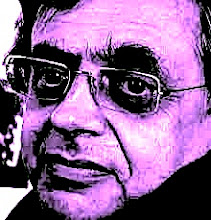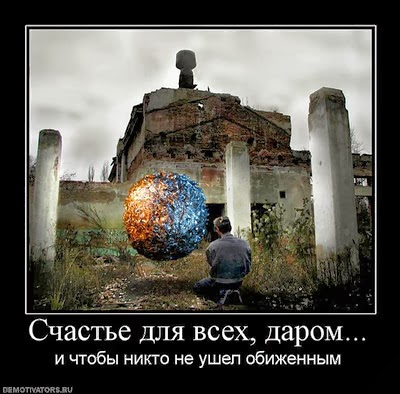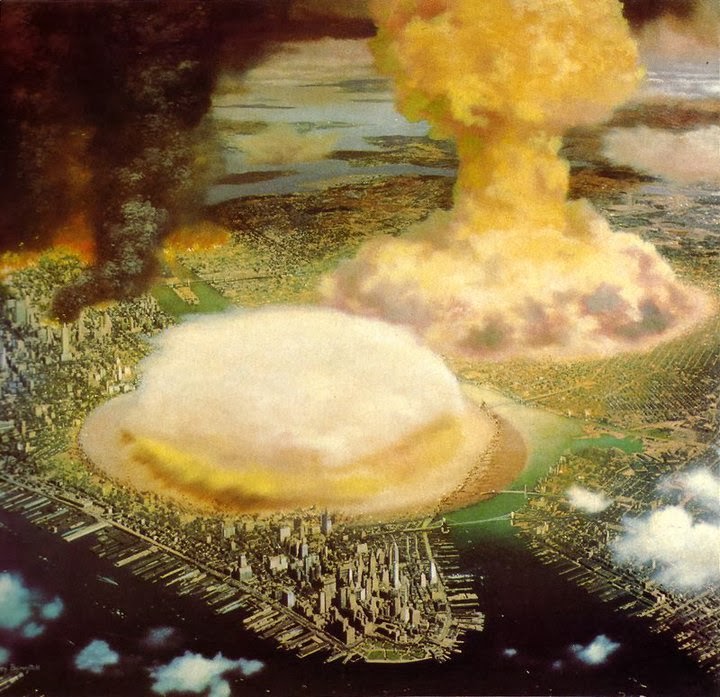An insightful and heartening essay on Makanin's 'Underground' and two other recent Russian novels( by Butov, Ger). I am really grateful to the man who wrote it. GC
For almost two centuries—since Alexander Pushkin’s masterpieces laid the foundation— Russian literature has persisted in addressing the core issues and dilemmas of human existence, taking humanity’s measure, and explaining Russia and Russians to themselves and the world. Even during the Soviet era,when virtually all of Russia’s finest writers and poets were exiled, killed, imprisoned, savagely censored, or forbidden to publish, the tradition lived in underground samizdat, manuscripts smuggled abroad, and in the state-run literary magazines of the “liberal” persuasion, especially during political thaws.After a brief pause in the turbulent decade following the August 1991 revolution, Russian literature announced its presence by several important works. The three novels in this survey were chosen for their outstanding aesthetic qualities, the depth and intensity of the spiritual quests that they illuminate, and the insights that they provide into the fundamental issues with which Russia grapples today. All three narratives— (Andegraund, ili Geroy nashego vremeni or Underground, or the Hero of our times) by Vladimir Makanin, 1999; (Svoboda, or Freedom) by Mikhail Butov, 2000; and (Dar slova. Skazki po telefonu, or The gift of the word. Fairy tales over the phone) by Ergaly Ger, 1999—take place between the late 1980s and early 1990s, either entirely (Svoboda and Dar Slova) or mostly (Andegraund), and provide some of the first artistic interpretations of still-unfolding seismic changes in the country. None of the three novels has been translated into English.
The publication of each book in the past two years was a literary event. Many Russian critics consider Vladimir Makanin, the author of Andegraund (the longest, most ambitious, and most important work of the three), the best living Russian novelist. He is the 1993 winner of the country’s most prestigious literary prize, the Smirnoff-Booker, which is
awarded annually to the best novel. Mikhail Butov received the Smirnoff-Booker in 1999 for Svoboda. The authors represent three generations of Russian writers: Makanin is sixty-four years old, Ger fortyseven, and Butov thirty-seven.
A Modernist Sensibility
Makanin’s and Butov’s novels share a decidedlymodernist sensibility, breathing again in Russia after it was smothered by the official
“socialist realism” in the early 1930s.1 Both Andegraund and Svoboda are narrated by the main characters: the worlds of both books are constructed solely from their impressions, memories, and thoughts. The
timelines are jumbled, especially in Makanin’s novel. The past invades the present. A cascade of self-contained stories, scenes, vignettes, observations, and meditations replaces a conventional plot. Sketched in a few masterful phrases, friends, relatives, neighbors, and lovers wander into the narrative and disappear without a trace. Except the narrator’s best friend, the twistedand tragic Andrei, no one in Svoboda has a name. The rhythm is a pulsating, deliberately dissonant staccato.
The jagged—and in Makanin’s case often jarring— narrative is constantly subverted, interrupted, shattered, and then just as abruptly reassembled. The searing and frenzied onrush of thoughts, images, and sensations appears to overwhelm syntax: sentences expand into paragraphs, and parentheses are spawned like extra arms to contain the torrent. Like the shadows thrown by the sputtering and wavering candle in Boris Pasternak’s famous poem, sentences now soar on angel’s wings, straining toward some sublime and ultimate truths of the human condition, now fall to earth, often landing in the gutter of a language rough and abrasive, like a smashed vodka bottle. Yet the mundane and the exalted do not clash: as in W. H. Auden, Joseph Brodsky, or Saul Bellow, they are united in a symbiosis that energizes the narrative and
makes it more precise and more enjoyable. Metaphors and similes elegant, sparkling, and often funny— pour out with naturalness. Subtle humor enlivens the novels; the unexpectedness heightens the effects. Slang, juicy and often bawdy, abounds. Freed from priggish Soviet censorship, both authors have successfully overcome the childhood thrill of all postauthoritarian literatures and do not wallow in the previously unprintable just for its own sake. They plumb the hitherto verboten
layers of human passion and the physiology of intersexual commerce frankly, confidently, and tastefully. And then there are what a character calls “Weltanschauung debates”: long, vodka-lubricated, ardent monologues and exchanges about the human phylogenesis, the place
of humankind in the universal design, about art, honor, choice, ethics, and aesthetics. Not a bit of triteness intrudes; what could have turned banal is rendered fresh and jolting.
The Honorable Dropouts
The heroes of Butov’s and Makanin’s books are spiritual self-exiles from the Soviet world. Their descent to the bottom (like that of Orwell’s characters: the narrator in Down and Out in Paris and London and Gordon Comstock in Keep the Aspidistra Flying) is a self-conscious and deliberate act of defiance in defense of personal and artistic freedom.
The ensuing poverty, hunger, and homelessness are a stoically accepted price of that freedom. Their choice was not made out of desperation but, as the narrator of Svoboda explains, was “sought long and hard” and
“rushed” toward—a journey that the narrator hoped would “bring me to some destination” of dignity and usefulness.
The apartness of the young narrator of Svoboda is relatively short-lived: no more than a year or two. Toward the end, he, like Comstock, finds contentment (perhaps even happiness) in the return to what most readers would consider a normal state: permanent work, permanent home,a wife and a child.
Makanin’s hero, Petrovich, had begun practicing freedom long before perestroika made such pursuits relatively safe from persecution. Exercising what Isaiah Berlin called “negative freedom”—the freedom to be left alone, to walk away from the state—was a feat in the pre-1987 Soviet Union, where the state owned everything and provided everyone’s livelihood. Only work for the state secured propiska (a residence permit) and thus an apartment or, for tens of millions, a room in a communal flat. Severing ties to the state was an act of moral secession, the affirmation of private sovereignty over one’s life. One of the worst of many punishments, which included arrest as a
loafer and parasite and sentencing to a labor camp or exile, was the lack of a place of one’s own.
Both main characters depend on apartment sitting and rely on a network of friends, friends of friends, and neighbors for a roof over their heads. Butov’s hero is lucky never to have found himself without a place to stay. Makanin’s Petrovich, whose home is a cot in the worst section of a workers’ dorm, once had to resort to shelters, which in post-Soviet Moscow gradually began to complement jail and exile as the destination for the homeless. Butov’s hero descends to the dno (the bottom) after an unsuccessful attempt to edit and publish theretofore forbidden books on the first wave of glasnost. Petrovich (his patronymic—no one can recall any longer his given name or surname), now in his late fifties, had been agshnik, or a denizen of andegraund, for nearly two decades. Not one of his novels or stories, although read in the underground samizdat and highly praised by fellow-writers, had seen the light of day; after fifteen years of “total rejections,” his oeuvre “was clogging the bowels of editorial offices and publishing houses.” He had not written
anything for years: “Words piled up, quite a few of precise and . . .tender words, but they no longer aimed at the empty sheet of paper.” Still, like a Chekhov character who invariably recalls his study and writing desk in the moment of trouble, at every turn for the worse Petrovich thinks of his old Yugoslavian typewriter—an existential synecdoche, a stand-in for his lost art and for the hope that never materialized, the one item he saved from a temple of the only god that he ever worshipped.
Petrovich is a watchman in a workers’ dorm-turnedapartment building. (In the catastrophic Soviet housing shortage, most tenants never received apartments of their own and permanently settled in dorm rooms.) Prized for his honesty and helped by the aura of a “writer”—which in pre-1991 Russia connoted not only an occupation but also high moral standing—Petrovich usually has no shortage of apartments to sit—and to luxuriate with his own phone, books, normal bed, and a refrigerator with bits of chicken and sausage, and a few cans in the cupboard. Harmless and trusted, Makanin’s hero is ex officio a confessor to the dorm tenants, who bring their tales to his silent acceptance. “Oh how they want to be understood! That is why they drink with you and sleep with you,” Petrovich notes. “The feeling of being understood is an intoxication of a special kind. A necessity but also a nearly narcotic dependence.” Interrupted only by the gurgling of poured vodka, the confessions offer many vignettes: amusing, sad, tragic.
By far the most powerful segment of Andegraund is the hero’s three-month descent, meticulously and mercilessly recorded, in the drug-induced hell of a psychiatric ward for criminal suspects. (Petrovich’s brother Venedikt, a brilliant artist, had been reduced to semi-idiocy in the same psychiatric ward twenty years earlier.) The destruction of individuality, “scraped away with a steel scraper;” the brain’s inability to concentrate on even the simplest thoughts; the reduction of otherwise healthy adults to a teary vegetative state—these pages are among the most horrific passages encountered in Russian belles-lettres. They are also the first such detailed, lengthy, and artistically piercing treatment of punitive psychiatry, one of Soviet Russia’s most despicable crimes.
Neither novel is an effortless read, although Svoboda is often elegant and enchanting. The books are dense, intense, and demanding, and in both the whole is less than the sum of their often brilliant parts. Andegraund— whose kinship with Dostoevsky is underscored by the
title’s similarity to the nineteenth-century Zapiski iz podpol’ya (Notes from the underground)—follows the original in its seemingly inexhaustible appetite for filth, horrific sights and smells, warped passions, and cruelty. Buried deep in the dark narrative are two murders
committed by Petrovich: one in self-defense; the other, premeditated, of a KGB informer. The themes of Crime and Punishment become resonate when a cunning police detective engages Petrovich in a grueling mental duel, as Porfiry Petrovich challenged Raskol’nikov.
Despite the difficulties, the reader reaps the pleasure of precise, weighty language and is sustained by its clarity, energy, and rich aphorism. (For instance, meeting another unpublished writer after many years, Petrovich notes that the poor man’s face exhibited “extinguished passions but still vigilant vanity.” “Ideology,” muses Butov’s hero, “is
when complex constructions are invented in order to avoid admitting simple things.”) Despite their decidedly cheerless subjects, neither novel ever sinks into maudlin self-pity. Like his hero, Makanin’s sentences are tough, shrewd, sparse, as if cured by alcohol and the wisdom of age—and then suddenly vulnerable and rambling: openended searches for truth and love.
Post-Soviet Existentialism
For both Petrovich and the narrator of Svoboda, by the late 1980s the dno becomes a vantage point from which to watch the disintegration of Soviet civilization without danger of contamination by its filthy detritus: “Unrushed and a bit sleepy, you lie on a sandy bottom in a blue water, while on the surface large and smallpiles are floating by,” Petrovich records. “The water is clear, the sun shines, [human waste] floats by.”
The demise of the Communist regime in August 1991 means that protecting art from corruption is no longer the key rationale for self exile. There is now a much broader and deeper agenda, and its development and pursuit fully justify classifying Andgraund and Svoboda as “philosophical” novels.
Suddenly the god of Communism was dead. The elaborate and omnipresent official ideology expired together with the way of life it spawned and enforced. The emptiness required a painful adaptation, perhaps especially for those who, like Petrovich and his friends, had defined themselves by moral opposition to the dictatorship. Living
honorably was no longer synonymous with a solitary personal struggle against totalitarian conformity. The old moral compass could no
longer guide; a new one must be reinvented and calibrated daily. Values became a matter of choice rather than a given; men had to create their own meaning and instill their lives with it. They were to exercise free will amid the ruins of state socialism—an existentialist project that must have made Jean-Paul Sartre, the leading modern exponent of existential philosophy and one of the Soviet Union’s staunchest supporters, turn in his grave. “We are free from the past. We are a clean slate,” Petrovich concludes. “The world must be thought through from zero.” (Makanin’s book begins with Petrovich settling in a cozy chair in the precious safety and warmth of one of his borrowed apartment-havens to read Martin Heidegger, a key precursor of Sartre.)
In the end, among the many echoes of Dostoevskian “underground” in these two books, this one is the loudest: man standing alone, naked without the cover of private and official verities and religious and political isms; petty, angry, small, insulted and insulting, yet stubbornly insisting on his right to be self-conscious, to sort things out, to face ugly, chilling, and merciless truths about oneself— and then to follow one’s free will, however irrational at times and, like the Underground Man, try to “become anything” he wishes to be.
Recalling Chekhov’s moral imperative of “squeezing out the slave” from one’s soul drop by painful drop, Petrovich discovers that “our postslave vacuum is being filled badly.” Filling that vacuum becomes the daily task
of men and women as they drift in and out Makanin’s and Butov’s narratives, sifting through the rotting debris of the ancien régime, and examining their own past in search of suitable elements of a new moral universe.
Healing and Scrutiny
Distraction from that difficult work is a danger. People may “forget,” Petrovich worries, “forget, turn on television,” with its screen like a “giant magnifying glass over a gnat.” The prisoners of “group dependence,” they talk too much to one another, but not to Heaven. Corrupted by seven decades of censorship and terror, the language itself must be scrubbed from the alluvium of propaganda and self-illusion. “Freedom,” Butov writes, “begins when things stop hinting at anything but themselves.” (One of Svoboda’s characters, an amateur director of a tiny theater company, is convinced that a theater of gestures, not words, should fill the gap while language is being purged and reinvented.) Though wandering in a desert like ancient Hebrews, Petrovich’s compatriots—and humanity as a whole—seem incapable of “exploding with the Word.”
The herculean task of giving people the insight and energy to produce and deploy that Word in daily construction of selves endows the dno, its denizens, and their art with a new, vital function. “Their Russian-Soviet world collapsed,” Petrovich notes of his neighbors. “They were grateful. Their warped souls, trampled out by daily travails, needed … a moment of silence. A pause.” Butov’s hero too “hoped to find a solution in silence, a means to remake life into an existence that would coincide with his
innermost self”—a silence that would be “palpable and weighty like a well-chosen word,” a silence that instills “the longing for the unattainable—the yearning that is as sweet and powerful as opium.” Art’s perennial effect of recuperative, restoring silence that transports us from the din of petty and lying thoughts and surface impressions into the bliss and pain of self-discovery becomes doubly crucial.
Petrovich’s favorite painting is Russian suprematist Kazemir Malevich’s 1913 Black Square—its “web of invisible light” a plea for “a stop, a universal slowing down,” a warning for humanity as it hurtles along
toward another sweet and dangerous illusion. Neither Makanin nor Butov offers sweeping solutions to the existential quest: this is a time of analysis, not synthesis. “Scrutiny and interpretation are the gist of any intense human interplay, and of love in particular,” wrote one of Russia’s best twentieth-century poets, exile and Nobel Prize winner Joseph Brodsky. “They are also the most powerful source of literature.”2 For
Makanin’s and especially Butov’s characters, the mundane, the overlooked, the quotidian is there to be scrutinize and then squeezed, pinched, and even punctured to yield the juice of meaning.
The hero and narrator of Svoboda begins from the bottom up, as he carefully observes the abundant mice, cockroaches, and spiders in an apartment that he temporarily occupies. He notes the behavior of cockroaches dying en masse from the effects of a new and powerful poison. He trains a spider to understand hand gestures
as a prelude to food offerings. To subvert the ordinary and to keep themselves off balance the better to awaken and sustain the capacity for daily self-construction, Butov’s characters turn their lives into one lengthy happening by engaging in odd endeavors, and the chronicle of these activities gives the novel a texture and tempo of a diary kept by a precocious, wonder-struck child. The narrator joins his friend and
landlord in prowling through Moscow in search of “special movements when people lose control over their bodies” with the intent of photographing them. He agrees to the peripatetic Andrei’s offer to guide him on an expedition inside the Arctic Circle (and nearly dies of exposure). In a country where the possession of weapons is a
serious criminal offense, he assists Andrei in transporting old carbines on a Moscow commuter train. He witnesses a sermon that rids a renovated Orthodox church of rats.
“Here’s to Changes!”
With Russian literature at last having ceased to be a substitute for a free political discourse, both novels relegate politics in a narrow sense to the background. But while their art, thoughts, and passions extend beyond
the politics of the day, the books’ characters are far from oblivious or ignorant of the revolutionary change around them. Perestroika and the “tank invasion” of August 1991 are noted. Yeltsin and Gorbachev are part of conversations. “Is the Motherland the same as state?” asks the narrator of Svoboda. “Are the authorities and the people one and the same?” To him, these already are rhetorical questions. Like a majority of Russians when the chips are down, the novels’ main characters chose the “democrats” over the Communists. Petrovich and his friends, the “unofficial artists,” participate in the mass
pro-Yeltsin demonstrations in Moscow in winter and spring 1991 and even attempt to march in their own small column under a banner of a giant brush and palette. From that occasion Petrovich remembers “the air oversaturated with excitement (as if induced by many cups of good coffee, free coffee drunk in someone’s house)” and “hundreds of thousands people, so merrily, so explosively drunk with freedom.” One of their group suddenly cries out “Svobo-o-oda!” (“Free-e-dom!”), and they all join the chant. Half a year later, one of Petrovich’s closest friends, the unpublished writer Mikhail, helps to build barricades around Yeltsin’s White House. Later, already in the post-Soviet era, watching a Communist demonstration on TV, the mother of Butov’s main character spits: “Scum. Walking dead.”
Petrovich is ready to “forgive the democrats their lack of power instinct, their vanity, their real estate games—forgive for the first, clean gulp of freedom.” In the last pages of the novel, a glass of vodka in hand and to the approving chorus of guests at a large party celebrating an addition of one room to a tenant’s apartment, he raises a toast: “Here’s to changes, ladies and gentlemen! Changes and a new grandiose wave of successes, luck, and shocks.”
And changes are everywhere. There are inflation and a sudden abundance of food. The narrator of Svoboda works for a while in a “resurrected” Moscow Orthodox church, which begins to publish books in theology, philosophy, and history, banned since 1917. The church has a
newly painted cupola and newly installed bells, now permitted to ring. After years of an underground existence, the narrator’s friend finds sponsors for his tiny ultramodernist theater, can rent a permanent large room and even pay stipends to two actors (the entire troupe). The
new openness and the sudden interconnectedness with the world beyond the disappeared Iron Curtain are heralded by the title of Butov’s book: the first two letters are the Latin s and v, instead of the Cyrillic c and в.
Usurped (though never extinguished) by the totalitarian police bureaucracy, luck and chance begin to reclaim their role in people’s fates—enlivening existence, creating opportunities, opening doors. Petrovich, tired, broken, ailing, and out of practice with creativity, may never live
a productive, satisfying life. But like millions of urban, college-educated young Russians, after many futile attempts to forge an honorable living in a new Russia, Butov’s hero finds his harbor in
a publishing venture started by an acquaintance. The one-time impoverished Moscow hermit is happy enough with his newly constructed self to marry and even have a baby, who reveals to him “a totally different mode of loving.”
Liberation by the Word
Though much in tune with the broader themes of Makanin’s and Butov’s works, Ergaly Ger’s Dar slova. Skazki po telefony (The gift of word. Fairy tales over the phone) is by comparison subdued and decidedly less
ambitious in depth and scope. It is also stylistically exquisite and the most enjoyable of the three. The dialogue— gritty, brimming with energy, often hilarious, chock-full of slang but never vulgar—is delectable. Ger’s is one of those rare books: finishing it, the reader is inexorably drawn back to leaf through the pages and find oneself reading page after page filled with overlooked gems.
This is a story of two young misfits and loners, Seryozha (or Seryoga) and Angelika, who find an “anchor in the mud,” a refuge and love in and through the word. The word here is of the purest, unadulterated, primeval kind: not only detached from paper but—spoken exclusively
over the phone—stripped of all sensual attributes and contexts other than audile. Ger’s choice of the transforming medium—elemental
and preliterary—fits the national mood. In the past decade the desperate search for roots unspoiled by the Soviet illness and thus usable for the foundation of new aesthetic and moral structures has made primitive art— music, painting, sculpture, singing—the rage of the
Moscow intelligentsia. Along with dishwashers and microwaves, the newly renovated apartments are full of souvenirs from Altai, Chukotka, India, Africa, and Australia: sitars, tam-tams, didgeridoos, and newly minted CDs of throat singers from the Khakass and Tuva provinces on the Mongol border in Southern Siberia.
Seryozha is a genius dramaturge, actor, director, and producer of what, in effect, were multihour phone modernist plays, improvised and open-ended. He is the absolute master of his chosen medium: “In conversations with him words bloomed, and played, and sparkled, and
changed shades.” Touched by his art, his partners (girls and young women all) suddenly “articulated better, thought freer, breathed easier (or forgot to breathe at all),” their “voices became resonant and juicy and the words burst on their lips like bubble gum.”
The eponymous “gift of the word” is a reference both to Seryozha’s talent and to the treasure of self-knowledge that he so generously proffers to his interlocutors, first suspicious, then enthusiastic accomplices (and coproducers and stars) in the construction and execution of the phone plays. His last and most successful coactor and love is the depressed Angelika, the heiress to her
mother’s robberbaron business empire.*
Seryozha worships his medium as one far superior to the written word: “Writers work with the cooled-down word, the word without roar, freshness, palpitation— [while the spoken word] wriggles like a newly born baby coming out head first, or side first, or any other way.” One of the finest modern English poets, Robert Graves, declared truth and art “wide apart.”3 Seryozha claims for his art a place above truth. The word as he practices it is “bigger than the truth, stronger than truth”: “There are many truths, but the precise word is always one and only…. Everything begins with it, everything ends with it, and everything is borne by it. I cannot do anything else. For me it is the main business
on earth.”
Like Petrovich, Seryozha is incapable of compromise and bastardization where his art is concerned. Petrovich refuses to publish censored words. Seryozha cannot force his words into the Procrustean bed of small talk of ordinary human intercourse (and remains, until Angelika, dateless and, with the exception of his army buddy, friendless): Uttered purposelessly, the heartfelt word grates on the ear—but Seryoga had no others; a neutral, varnishing small talk was beyond his ability. A strange, depressing deafness to petty words sealed his lips and his ears: he looked at peopleand saw that what they lived by was not at allwhat they talked about; he read their lips, hands, eyes, and wrinkles to tease out the true meaning, falling out of the circle of conversation into loneliness, lagging behind the general merriment, like a child who falls behind the grownups on a walk.
Seryozha too senses the danger in the sudden onrush of freedom and modernity that must be balanced by the painstaking effort at self-discovery. Hence, a plea for a pause and a paean to silence: “If one listens carefully, there is wind, and the rustling of leaves, and words dry
up, die, and are born again, like flowers on burial mounds in steppes.”
Art’s ultimate gift of freedom is an existential state to Seryozha. “Love and freedom are given us in physical sensation,” he concludes, “like soaring, or the soul’s leaving the body and blending with other souls.” The two—love and the freedom of self-discovery—happen to Angelica
simultaneously: With a thunder-like clap and burying the Middle Ages, there burst out the era of geographic discoveries of self. Like a generous Columbus, Angelika gave Seryozha a tour of her past—as if he were a coruler of this vast but gone-to-seed kingdom—and he always managed to snatch a souvenir from her past, to pull out of her stories something important, touching, missed by Angelika because of stupidity or ignorance. In return, she was becoming real. For the first time in her life she felt—so penetratingly, so truly—that she lived, not slept; for the first time in her life, she realized that she was a real, live Angelika.
Freedom bestowed by art supersedes the newly found economic and political liberty. “Aren’t you free?” Angelika asked one of the most powerful wheeler-dealers of perestroika Moscow, her one-time lover Timofey. No, he answered, even if for the moment he was victorious, having “cunningly looped around” his many and ruthless enemies.
After Seryozha’s violent death, Angelika carries on. The book’s last line finds her learning the Internet: Seryozha’s art, in which she became initiated by the master, is about to find a new medium.
The Tradition of Beauty
Despite its decidedly modern subject, Ger’s is an oldfashioned Russian novel: with a third-person narrator and a dynamic, linear plot, into which all characters, even secondary and tertiary, fit snugly. The narrative is smooth and stately, and it is replete with delightful similes
and metaphors. The polished sentences are redolent of Goncharov, Turgenev, Aksakov, Bulgakov, or Pasternak of Doctor Zhivago, as in this sketch of autumn in the center of Moscow:
'September gurgled in the still cold pipes of the apartment radiators, the shaggy green water of the Patriarshiy pond blackened and rippled, and the limes around the pond turned yellow—slowly and reluctantly, flooding the room now with warm honey gold, now with greenish copper…. Like stilled faces of watches, all four windows of theroom showed the time of rain.'
Ger describes a remote outpost in the Caucasus, where Seryozha wasted two years as a draftee in the Soviet army:
'The town itself was typical Russian backwoods, dusty or muddy depending on the season, with a forgotten bust of Pushkin in the sickly public garden and monumental fences, above which sunflowers proudly soared, and, higher still, ancient Tupolev bombers roared as they headed to guard one was not sure what, either the northern sea route or the Silk Road…. In the summer the crests of foothills bulked out across the river, and in the fall, after the rain season, like a bolt from the clear
sky, mountains of unimaginable beauty sprang in the sky, until the next summer and the hot dry wind: now white in the frosty blue, as if
etched by a diamond, now pink in the rays of the languorous steppe sunsets.'
The lines about the hyperinflation of 1993–1994 are likely among the best on this horrific subject anywhere:
'The country “swam,” like a knocked-down boxer, … and people lived not by the past or the future but by dollar rate, daily checking the inexorably ticking meter: inflation ate away at people’s innards, like an invisible pernicious plant-louse, rendering their souls colorless, devaluing
their labor, their lives, and confining their hopes and thoughts to today’s cash value.'
A Russian party is described as “the mad fullness of being, compressed by alcohol, and the triumph of dialogue, which, like a strong fish snatched by four hands from the waters of the Lethe, lashed the lips with its prickly and slippery tail.”
“There Cannot Be Russia without Literature!”
In one of his most beautiful and profound poems, the 1946 “Hamlet,” Boris Pasternak forged an unmatched portrait of the doomed struggle of artist and man of honor in a modern police state (and foretold, with chilling prescience, his own torment by the Soviet propagandists and death fourteen years later, following the award of the Nobel Prize for Doctor Zhivago). The last stanza reads:
'Or, preserving the meter but sacrificing the rhyme to the precision in translation:
But the order of things has been settled,
And the road will end where ruled.
I’m alone, all’s drowned in falseness.
Life is harder than crossing a field.'
In the last pages Butov evokes the same Russian proverb— (“Zhizn’ prozhit’—ne pole pereyti,” or “Life is not a walk across a field”)—but in a far more hopeful context:
'I think everyone has one’s own space in front of them, one’s own time—one’s own field, which has to be crossed, sacrificing something but holding fast to something else. But what is to be sacrificed and what is to be preserved—that must be decided anew every time. The decision is still hard—yet the defeat in the business of honorable living is no longer preordained as it wasfifty years earlier, when Pasternak wrote the poem, or even ten years ago. Judged by these three novels, high Russian literature is still fully and passionately engaged in the agelong
quest and continues relentlessly to “press on the brain with deepest, unanswerable questions, which cause most disturbing thoughts in the Russian mind,” as Dostoevsky wrote of Gogol.5
With censorship gone and with Russia rejoining the world after almost eight decades of isolation, those “questions” acquire the same universal meaning for the modern world as the ones that the great Russian writers of the nineteenth century posed. Cast with a characteristically Russian starkness, those subjects include now the exercise of free will, the proper uses and limits of newly acquired freedom, the daily ethical labor of self-creation, and the role of art in supplying the guidance and energy necessary for coping with these arduous tasks.
Petrovich calls the cot in a corner of the dorm his “anchor in the mud.” Yet it soon becomes clear that something else has a far stronger claim to that title. He declares the great Russian literature his “sole collective
judge, the only authority before which [he] (sometimes) feel[s] the need to confess” because only from there, “from the nineteenth century,” blew “the breeze of true morality” and because that literature was “indirectly connected with God.”
Neither epigones nor nihilists, the best post-Soviet Russian writers appear to consider themselves the rightful heirs to that glorious trove: confident enough to be irreverent and even familiar but also worshipful and aware of their giant responsibility.6 The precious craft is alive, mastered, burnished, honed, and built up. Unafraid of experimentation,
the craftsmen venture in new directions.
“There cannot be Russia without literature!” Petrovich declares. One believes him because he, his creator, and at least two other writers in the emerging Pléiad of post- Soviet Russian authors prove very much worthy of our trust.
* Dar’s fascinating and masterfully rendered background is Russian “primary accumulation” (the narrative stretches from 1989 to 1994): capitalism growing on and through the slimy sediment of utterly corrupt police socialism and its crime-ridden underground private economy. The side-story of Angelika’s mother’s climb up a greasy, and often bloody, pole from a manager of a state wine store to the multimillionaire ruthless bootleg queen of Moscow is a reminder of a key formative event of Russian capitalism: Gorbachev’s 1986–1991 “dry law.” Just as its namesake in the United States, Russian prohibition created nationwide and violent organized crime that for years to come would plague Russia and the world and launder its billions of dollars abroad and at home.
Notes
1. While interrupted in Soviet Russia, the vibrant modernist
tradition was continued in Russian by many fine émigré writers,
most notably the great Vladimir Nabokov.
2. Joseph Brodsky, On Grief and Reason (New York: Farrar,
Straus and Giroux, 1995), p. 237.
3. Robert Graves, “The Naked and the Nude,” in Robert
Graves, Collected Poems 1975 (New York: Oxford University
Press, 1988), p. 189.
4. Boris Pasternak, “Hamlet’’ (1946) in Izbrannoe v dvukh
tomakh (Selected works in two volumes), vol. 1 (Moscow: Khudozhesvennaya
Literatura, 1985), p. 390.
5. Polnoe sobranie khudozhestvennykh proizvedeniy (Full collection
of fictional works), vol. 11 (Moscow: Litizadat, 1929), p. 250.
6. The continuity is underscored by the title of Makanin’s novel, which also evokes Mikhail Lermontov’s 1840 masterpiece, Geroy nashego vremini. One of the vignettes explicitly draws on Gogol’s Overcoat, and the psychiatric hospital pages contain clear references to Chekhov’s Ward Number 6.
Three Russian Novels as a Guide to Practicing
Freedom and Constructing a New Self
Leon Aron is a resident scholar and director of Russian
























